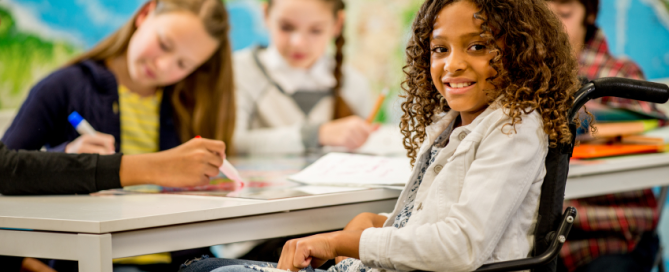Individualized Education Program Attorneys
The Individualized Education Program (IEP) is a meeting that must take place before a child with a disability’s school year begins and usually includes the child’s teacher, school support staff, anyone who completed an assessment of the child, a school administrator and the child’s parents or guardians. Either the school or the child’s family can invite anyone else they think would be appropriate.
The IEP is also a document that is completed at the IEP meeting and includes detailed information about the child’s disability and current level of performance, specific goals and objectives related to the child’s special needs and in all classes, related services and a placement description.
The IEP can be implemented only if the school and the family agree. When there is a disagreement either the school or family can go to what is called a “due process hearing.”
Due Process
If there is disagreement on any item in the Individualized Education Program the family (or school) has the right to present the disputes to a neutral third party who will consider written and oral testimony and determined who is right. If that party finds the parent or guardian is right the school must provide the item(s) that was in dispute.
Related/Support Services
Depending on the child’s unique needs there may be a number of support or what are called “related services” that must be provided. The law lists the related services, but even services not listed may be provided if the Individualized Education Program team agrees and includes that service on the IEP document.
The listed related services include Audiology services, counseling, sign language interpreters, medical services provided by a nurse, occupation therapy, orientation and mobility services, parent counseling and training, physical therapy, psychological services (including individual therapy), rehabilitation services, social work services, speech and language services and transportation.
Placement – Least Restrictive Environment
The IDEA requires that a child with disabilities be educated in the “least restrictive environment”[LRE] which generally means that the child has a right to be in a regular classroom with non-disabled students unless it can be shown s/he cannot “achieve satisfactorily even with related/support services.”
At the same time schools must provide alternative placements including special classes, special schools and even placement in hospitals or residential treatment centers if appropriate. The school may also be responsible for placement in a non public school (and pay for it) if it does not have appropriate program for the student.


